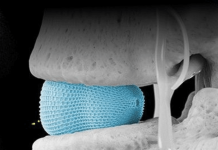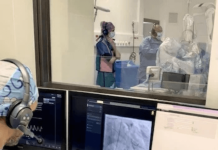Second Heart Assist announced successful case studies in South America with its Whisper catheter-delivered heart assist device. Dr. Adrian Ebner, head of the cardiovascular department at the Sanatorio Italiano Hospital in Asuncion, Paraguay, and his team completed non-randomized case studies involving six patients. Second Heart Assist says the successful case studies pave the way for expanded initiatives in the United States.
Whisper is a percutaneous mechanical circulatory support device designed to enhance cardiac function and renal perfusion in patients suffering from acute decompensated heart failure. The case studies in Paraguay focused on using Whisper to support cardiovascular hemodynamics during high-risk percutaneous coronary interventions.
Related: Tivic completes enrolment in nerve stim trial
“The Whisper device stands out for its ability to mobilize a significant volume of fluids, showcasing its superior design compared to conventional micro-axial pumps,” Second Heart Assist CTO Alex Richardson said in a news release.
Richardson added: “Micro-axial pumps require extremely high rotations per minute (RPMs) to generate enough flow to reach the renal arteries. However, such high RPMs also lead to increased hemolysis, which can adversely affect kidney health. In contrast, the Whisper device efficiently supports high flow with low RPMs providing less risk to the kidneys, underscoring its advanced engineering,”
Percutaneous circulatory assist devices play an important role in providing mechanical support to patients undergoing high-risk percutaneous catheter interventions. They can stabilize the condition of people experiencing an acute myocardial ischemia. During a cardiogenic shock after a significant heart attack, they can save lives.
“Having done many trials with a multitude of mechanical circulatory devices, I am very impressed with how quick and simple the device is to deploy,” Ebner said. “The performance and flow the pump creates at low RPMs is amazing.”
Second Heart Assist says its Whisper device does not cross heart valves, making it “a true percutaneously placed device.” It features an expanding nitinol stent cage, which the company said “offers unique aortic wall protection from pump impellers.”






